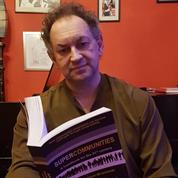Leaving aside moral judgements, politics has been far more successful than economics at reducing inequality and instability, in the UK at least. Keith Harrison-Broninski FRSA asks why this is, and looks at how we may all need to help provide new sources of value.
In 1780 the electorate in England and Wales consisted of just 3% of the total population - and all voting was open, so voters could be bribed or intimidated into voting a certain way. This percentage was to increase gradually from 1832 onwards, until now any adult British, Irish or qualifying Commonwealth or EU citizen can vote in UK parliamentary elections (with restrictions applying only to certain convicted criminals) and UK elections are generally held to be fair.
So politics in the UK has come a long way toward reducing inequality, but how about economics?
According to a comprehensive study of nineteenth century earnings in Britain, in 1827 the richest 10% of its men took home 27.93% of all earnings. By 1901 they were taking home 30.66%. In 2010 (the latest year for which data is available), the richest 10% of people in the UK held 45% of all its wealth - and the poorest 10% only 1%. Economic inequality has consistently increased.
Similar statistics are available for instability. No violent political revolution has occurred in Britain since the civil wars of 1642-51, and protests have caused less and less impact ever since. In 1798 there was an abortive Irish uprising. Rioting and conspiracy due to unemployment and food shortages in the early nineteenth century were ended by parliamentary reform in 1832. The hunger marches of the early twentieth century, except for the Jarrow March, were brutally repressed and are now largely forgotten. Modern social protests such as Occupy are humoured by the government and media alike as little more than a diversion from the real issues of the day.
By contrast, the UK was affected by two economic crises in the eighteenth century, at least four in the nineteenth century, at least ten in the twentieth century, and only 15 years into the twenty-first century by at least five. The average frequency has increased from every 50 years, to every 25 years, to every 10 years, to every 3 years.
Leaving aside moral judgements, by both these key measures - reduction of inequality and reduction of instability - politics has been far more successful than economics, in the UK at least. Why? Of course there are many theories, but we can perhaps cut the Gordian knot by taking a systems perspective.
Economics is traditionally defined as the science of scarcity. However, this is almost a tautology. Nearly any practical field of study can be redefined in terms of its focus area as a science of scarcity. Medicine is about scarcity of health. Law is about scarcity of justice. Structural engineering is about scarcity of stability and mechanical engineering about scarcity of energy. So what is scarce in politics, and what in economics?
It could be argued that politics is about scarcity of power and economics about scarcity of value - and from this perspective a key difference becomes apparent. Power is of little use if the holder is unwilling to exercise it, as modern Western states tend to feel about military action - whereas states more willing to use the forces at their command tend to garner corresponding spoils. The British government showed this in its handling of social unrest until the Second World War, and Russia showed it only recently in Crimea and the Ukraine. In contrast, it is the other way around with value. Wealth increases if it is invested at low risk, rather than gambled or treated as disposable - an understanding that the Chinese government is now battling with, as it tries without success to convince its citizens to spend their hard-won earnings.
So power flows around a political system, being used at a similar rate to that which it is acquired. Economic systems, on the other hand, have a high level of entropy. Useful value is continually depleted as those who acquire it remorselessly remove it from play. So, major new sources of value must be injected periodically if the system is to keep running.
In the sixteenth and seventeenth centuries new value was extracted from the ground, often in exotic locations, in the form of natural resources such as minerals, wood and spices. In the eighteenth and nineteenth centuries, the cost of labour was reduced via slavery and industrialisation. In the twentieth century, the pace of trading and thus profit was increased, via new forms of transport and the introduction of computers. At every stage, discontinuous shifts took place in financial structures and modes of business, of which some people were quicker to take advantage than others - leading both to colossal advantages for first movers, and to market instability as others reeled from the impact.
Inequality and instability may thus be endemic to economics. If so, what will be the next new source of value?
After the sea changes wrought by the introduction of personal computing, the Web and mobile devices, the rate of improvement in digital technology may be slowing down, at least in terms of economic impact. Cars that drive themselves and watches that monitor your blood pressure are useful at a personal level, but unlikely to transform markets - we may buy better machines and devices, but not more of them, and if anything their prices will fall. New scientific advances such as nanotechnology, genetic engineering and nuclear fusion all offer more economic promise but are at least 30 years away.
In the meantime, all we may have is ourselves. In an age of austerity, governments across the world are looking to their citizens to provide a safety net for reduced public services. Initiatives such as Community-Wealth.org and The Next System Project seek to devise, measure and disseminate practical strategies for community-based action. The Bank of England measures the value of volunteer effort as somewhere between £200 billion and £1 trillion per annum in the UK, figures that at face value appear to raise the economic status of the third sector above healthcare, defence and pretty much everything else.
However, value is no good unless you can access it. Without a simple digital tool to use as a vehicle for collaboration between community organisations, it is not possible to manage who is doing what towards which ends, and create the synergies necessary to unlock value from community resources. This is what a Town Digital Hub is for - and next time, I’ll conclude this blog series with a look at how it works in practice. In the meantime, there is more information available on the TDH Web site - and my very best wishes to you all for a Merry Christmas and a Happy New Year.
Keith Harrison Broninski is founder of Town Digital Hub, a new project supported by the RSA that helps councils make better use of volunteering and other community resources to sustain and improve public services.
Related articles
-
Four ways the RSA is supporting the community banking movement to make an impact
Mark Hall
Mark Hall outlines four key ways in which we are supporting the community banking movement to make an impact.
-
Raising productivity benefits the whole of society. But how can Fellows help?
Rory Campbell FRSA
Can you lend your time, insights, experience and skills to help bring out the potential of an ambitious business leader, through joining a mentoring programme?
-
The EU Needs a New Grand Strategy And Britain Is Needed
Jukka Aminoff
In the first of a two-part series on the UK's departure from the EU, Jukka Aminoff discusses the need for a new 'grand strategy'.



Join the discussion
Comments
Please login to post a comment or reply
Don't have an account? Click here to register.
Dear Robin
Thanks for your thoughtful comment.
The problem is that much volunteering is of low effectiveness sInce it is poorly joined up. Everyone involved with the third sector knows how hard community groups struggle to engage with each other, with their councils, and with the public they seek to serve.
It's a system issue, and to resolve it there needs to be a means of structured, goal-focused collaboration between the many stakeholders in each community.
Hence the current low realisation of value from volunteering and consequent need for something like TDH.
I hope this helps clarify!
Kind regards,
Keith
Dear Keith,
I am not quite with you. If the value of volunteer effort that is being expended in the UK can be 'assessed' at all it would pre-suppose that it is being delivered to some client or in some cause or other that is benefiting from it, and in that sense it is a community resource which is already being 'accessed' by its clients.
What exactly is the additional 'good' that you envisage being gained by another 'intermediary(?)' agency interposing itself such that value which is currently valued, by the BoE(?), but is viewed by yourself as being of 'no good' is thus transformed to being of some 'good' by your estimation?
Perhaps I do not understand how value is popularly now defined. In which case I apologise for my mistake and will approach my alma mater, UEA, so that I can adjust my understanding of the salient differences between how economics' conceptions of value differ from those of politics and of political science. I had not realised that the word is used with more than one meaning even though both forms use the same scalar metric. Perhaps it would help if you could explain how the political concept is actually measured? Respectfully yours, Robin